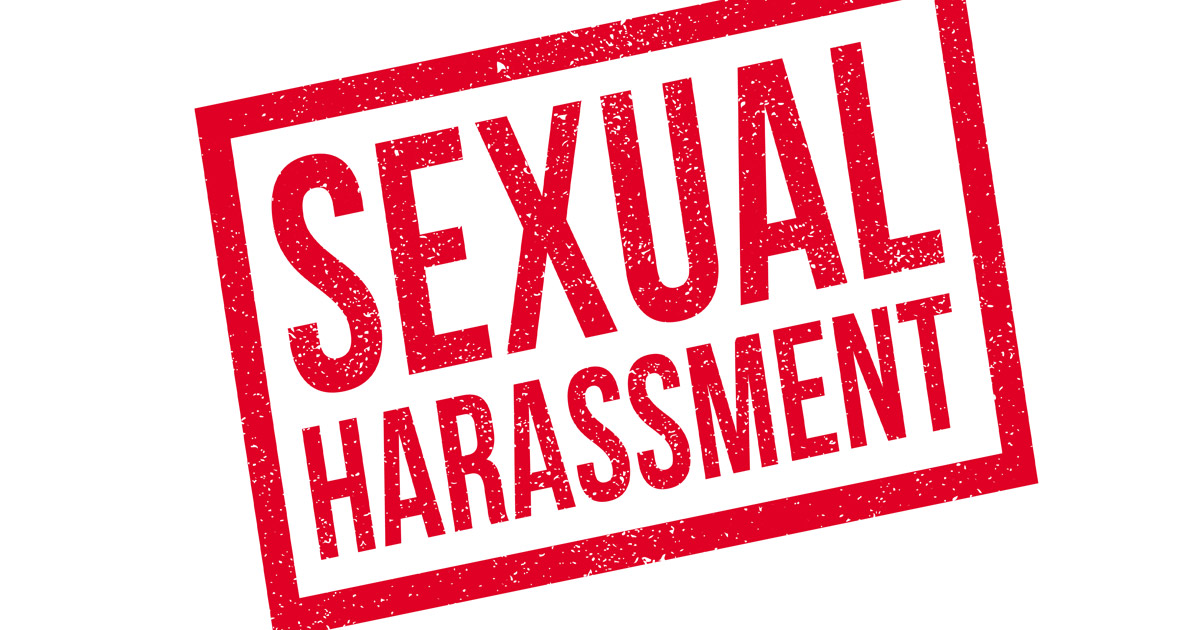Sexual harassment in the workplace violates federal law and many state and local laws. It is easy to think of sexual harassment as occurring between members of the opposite sex, but same-sex sexual harassment happens, too, and is similarly illegal.
What is Sexual Harassment?
Sexual harassment is when a co-worker, supervisor, or a third party such as a vendor or client subjects you to unwanted conduct because of your gender.
Sexual harassment behaviors include:
- Demands for sexual favors, sometimes in return for a promotion or raise
- Jokes or comments of a sexual nature
- Receiving lewd texts, emails, or images
- Unwelcome sexual advances or touching
There are many other examples of sexual harassment at work. The bottom line is this: sexually harassing behavior is illegal when it is ongoing and creates an intimidating, hostile, or offensive working environment or results in an employment action, such as being fired for not complying or promoted for complying. The latter is called quid pro quo sexual harassment.
A key to determining sexual harassment is that the actions must be based on the victim’s gender. For example, a manager who makes sexist – but not sexual –
comments that offend female employees is more than likely engaging in sexual harassment.
The signs of same-sex harassment are often the same as sexual harassment between two people of the opposite sex: sexually offensive or vulgar language and other verbal, visual, or physical conduct motivated by sex or gender. For example:
- Comments or questions about the victim’s social life or sexual life
- Demands for dates or sex
- Flirting or unwanted sexual advances
- Jokes or comments about the victim’s clothing or fashion style
- Jokes or insults about genitalia
- Lewd and offensive remarks about the way the victim acts, walks, or talks
- Lewd comments or taunts regarding bodily appearance
- Physical sexual assault
- Sexually suggestive simulations
- Verbal sexual assaults, such as threats of rape
- “Wolf whistles” or catcalls
Is Same-Sex Sexual Harassment Illegal?
The U.S. Supreme Court has held that sexual harassment is illegal under Title VII of the Civil Rights Act of 1964, even if perpetrated by someone of the same sex.
In one landmark case, Oncale v. Sundowner Offshore Services, a male oil-rig worker, who claimed repeated sexual harassment by his male co-workers with the acquiescence of his employer, was found to be protected under Title VII.
Oncale set a precedent for analyzing same-sex harassment and sexual harassment without the motivation of “sexual desire” by stating that any discrimination based on sex is actionable if it places the victim in an objectively-disadvantageous working condition, regardless of the gender of the victim or the harasser.
In other cases, courts have held that harassment based on gender stereotypes of how a man or woman should act is also illegal under Title VII. For example, harassing a woman for acting masculine or a man for being effeminate is illegal because it is based on the person not conforming to gender-based stereotypes.
What About Company Policies?
Employers increasingly include prohibitions on sexual orientation/gender identification discrimination and harassment in their employment policies. They should, whether or not they are required to by law.
Every employee has the right to a workplace free from hostile, harassing, and discriminatory behavior – no matter their sex, sexual orientation, or gender identification.
The Marlton Employment Lawyers at Burnham Douglass Advocate for Victims of Sexual Harassment and Discrimination
Workplace sexual discrimination is illegal, whether between members of the opposite or same sex. If you are a victim of sexual harassment or discrimination, let the Marlton employment lawyers at Burnham Douglass help you find justice. Call us today at 856-751-5505 to schedule a free consultation or contact us online. We have offices in Marlton and Northfield, New Jersey. We proudly serve clients in South Jersey, Camden County, Burlington County, Atlantic County, Gloucester County, and Mercer County.


